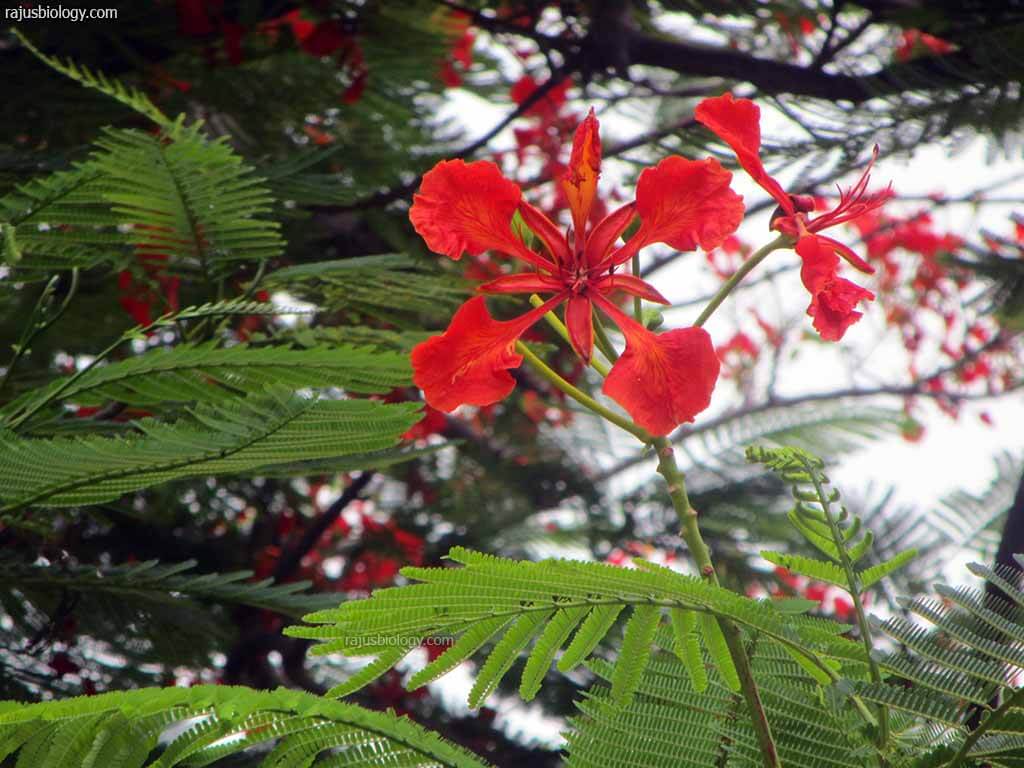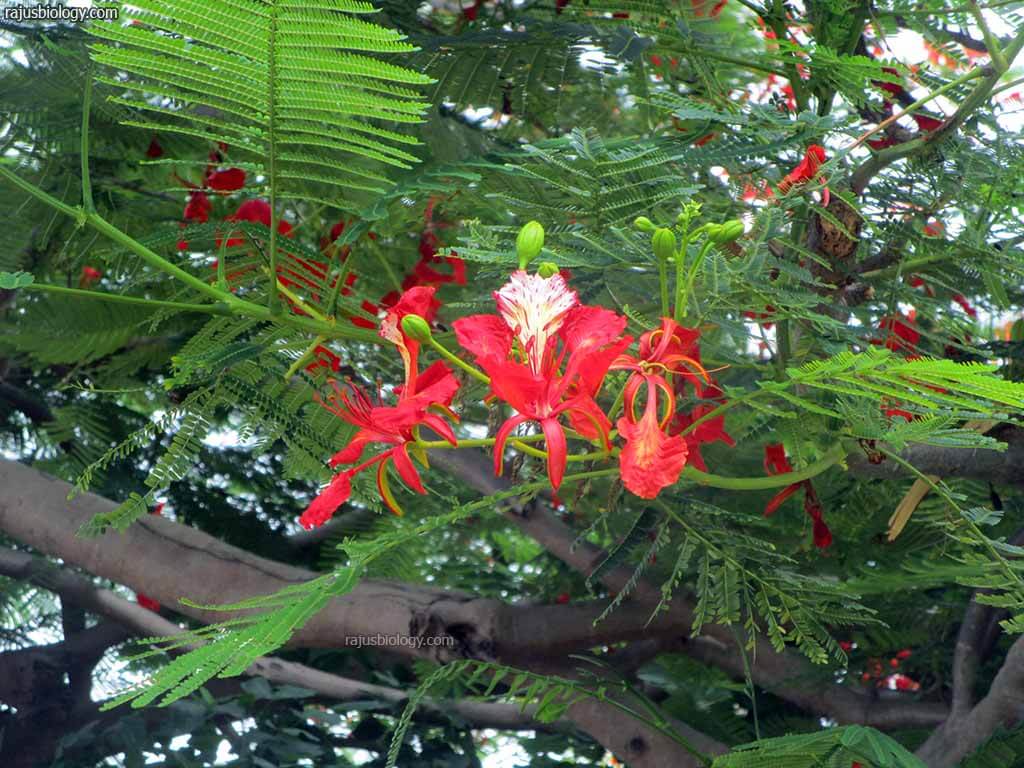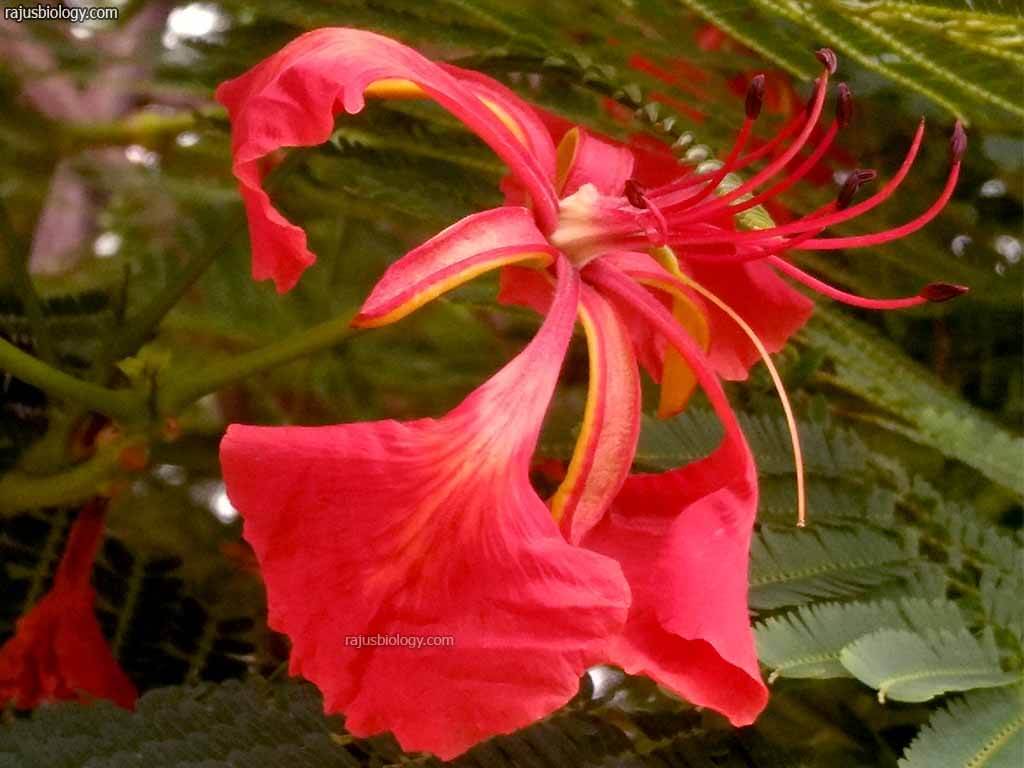Table of Contents
Delonix regia (Hook.)Raf.
In this article we will discuss about the Delonix regia :- common name, scientific name, medicinal uses and photos.
Common name
- English: Flame Tree, Royal Poinciana
- Tamil: Cemmayir konrai
- Hindi: Gulmohar
- Kannada: Kempu torai
- Assamese: Krishnasura
- Bengali: Krishnachura
Scientific name
- Name: Delonix regia (Hook.)Raf.
- Family: Fabaceae (pea family)
- Synonyms: Poinciana regia, Delonix regia var. flavida
Delonix regia Medicinal Uses
- Seeds containing flavonoids are used as wound healing agent in household
The plant is used in rheumatism. - The leaves, flower and stem bark is boiled and taken orally for cure malaria.
- The flower powder is taken twice in a day to treat Diarrhoea until the symptoms become disappear.
- Decoction of the leaves is used in the treatment of gastric problems, body pain, and rheumatic pain of joints.
Other Uses
- It is widely planted as an ornamental tree in parks and streets.
- The large pods and the wood are used for fuel. The calorific value of wood is 4600 kcal/kg
- The seeds contain gum that is used in textile and food industries.
- The gum obtained from the dried seeds is used as a binder in the manufacture of tablets.
Delonix regia Photos
You may like this
Reference
- Suhane, Nidhi & Shrivastava, Rishi & Singh, Mahendra. (2016). Gulmohar an ornamental plant with medicinal uses. 5. 245-248.
- Ethnobotany and Medicinal Plants of Indian Subcontinent. N.p.: Scientific Publishers, 2019.
- Patrick, Akwaji & Eyam, E & Bassey, Rosemary. (2018). Ethnobotanical Survey of Commonly Used Medicinal Plants in Northern Cross River State, Nigeria.
- Kumar Pandey, Abhishek. (2021). An Ethnobotanical Study of Medicinal Plants in Atal Nagar (New Raipur) of Chhattisgarh, India. 10.14303/irjps.2021.003.
- Singh, S. (2018). Ethnobotanical study of indigenous knowledge on some wild plants in Parsa District, Nepal. Journal of Natural History Museum, 29, 103–121. https://doi.org/10.3126/jnhm.v29i0.19042







![[PPT] The living world Class 11 Notes](https://rajusbiology.com/wp-content/uploads/2024/06/PPT-The-living-world-Class-11-Notes-300x169.webp)